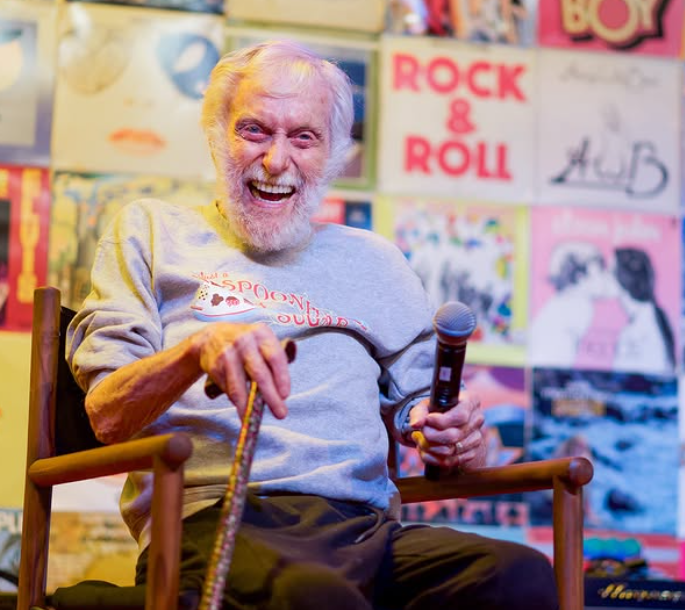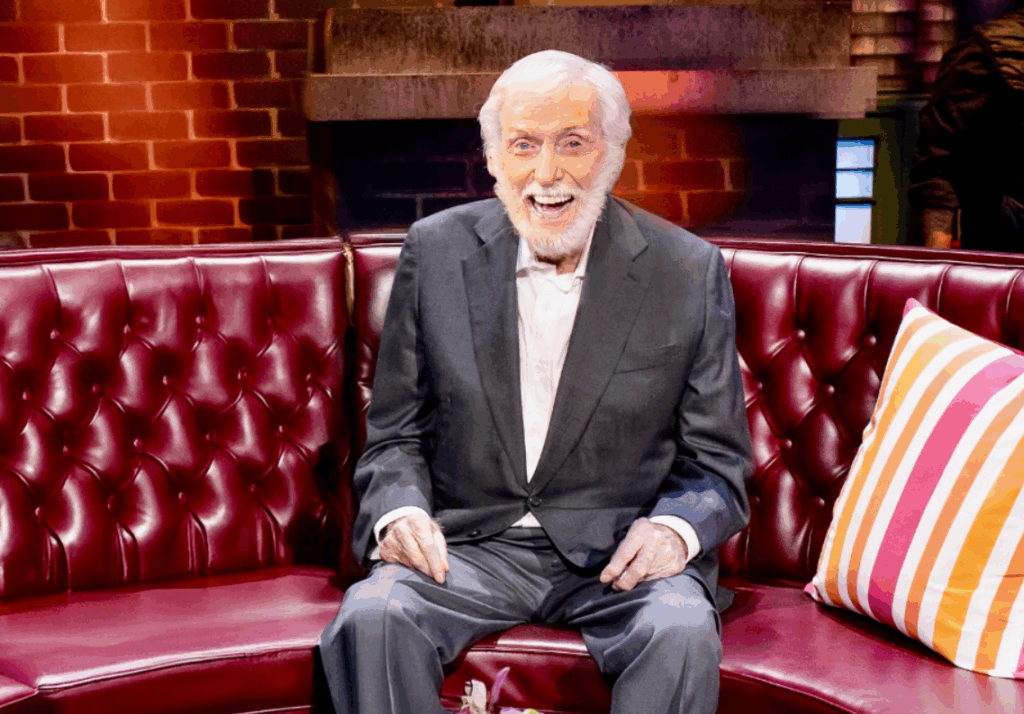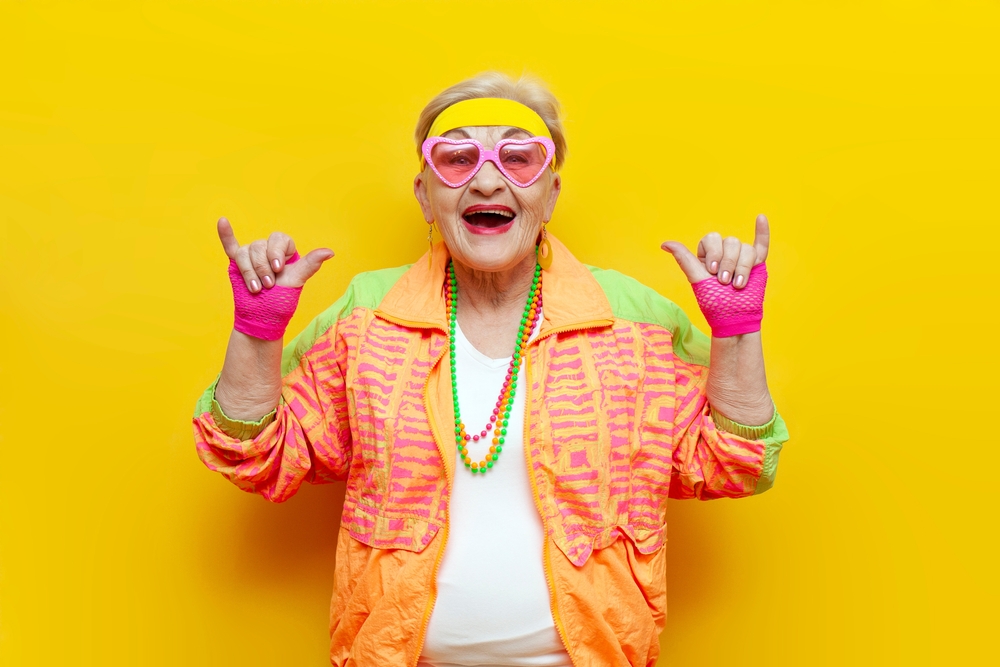Dick Van Dyke, 99, Details the ‘Curse’ of Living to Almost 100 Years Old

What does it really mean to live a century?
For most of us, the idea conjures awe—a mythical milestone marked by champagne toasts, morning show tributes, and a kind of reverence reserved for the exceptionally lucky. But for Dick Van Dyke, the beloved actor who has danced through the decades with more grace than gravity, turning 100 isn’t just a marvel—it’s a reckoning.
Born in 1925, the same year The Great Gatsby was published and just before talkies replaced silent films, Van Dyke has not only outlived his peers but the eras that defined them. He’s a living thread through nearly every chapter of modern entertainment history. Yet as he approaches his 100th birthday this December, Van Dyke isn’t focused on fanfare. Instead, he speaks openly about the quieter, more complicated truth behind extreme longevity—the “curse,” as he puts it, of outlasting nearly everyone you love.
What does it cost to carry that kind of legacy? And what can someone who’s seen almost everything teach us about aging—not just well, but wisely?
The Hidden Weight of a Long Life
Dick Van Dyke’s name evokes joy—musical numbers on London rooftops, slapstick comedy on black-and-white sitcoms, and a seemingly boundless energy that defies age. Yet behind that familiar twinkle lies a quieter truth: longevity, while outwardly enviable, comes with a heavy emotional toll.
At a recent event in Malibu, Van Dyke opened up about a long-planned reunion project with his dear friend and fellow actor Ed Asner. The two had hoped to revive The Odd Couple, a classic comedy that mirrored their real-life camaraderie. But when Asner died in 2021 at age 91, the project—and the friendship that had fueled it—was gone. “That would’ve been such fun, and we lost it. I’ve lost a lot of friends,” Van Dyke shared. The comment, delivered with characteristic composure, hinted at something deeper: the slow erosion of a lifetime’s worth of relationships.

Image Credits: Instagram @official_dick_van_dyke
His wife, Arlene Van Dyke, poignantly remarked, “He’s outlived everybody. That’s the curse of living to almost 100.” Her words capture the bittersweet duality of extreme longevity. It’s not just about birthdays passed, but about the void left behind when familiar voices go silent.
This experience, though personal, mirrors a growing reality for many in the modern world. According to data from the United States Census Bureau, the number of centenarians in the U.S. is projected to quadruple by 2055. And with that rise comes an often overlooked consequence: chronic grief. A study published in The Gerontologist refers to this as “cumulative loss”—a pattern in which bereavement becomes a persistent part of life, eroding emotional resilience over time.
For Van Dyke, the burden of absence isn’t theoretical—it’s lived. He’s survived his close collaborators like Carl Reiner, Norman Lear, and now Ed Asner. “Everybody I knew and worked with, there’s no one left,” he once admitted in an interview. These aren’t just celebrity names; they were his co-stars, creative partners, and friends through decades of shared triumphs and trials.
Loneliness and the Aging Experience

Image Credits: Instagram @official_dick_van_dyke
Van Dyke’s experience—outliving nearly every close friend, collaborator, and peer—illustrates what gerontologists call social thinning: the gradual loss of social connections over time. For those approaching or surpassing 100, like Van Dyke, this thinning becomes acute. It’s not just a matter of missing a few faces at the table; it’s finding that the table itself has largely disappeared.
This isn’t just an emotional observation—it’s a growing public health concern. According to the Centers for Disease Control and Prevention (CDC), social isolation is linked to a significantly increased risk of heart disease, stroke, depression, and even premature death. A 2023 U.S. Surgeon General report likened the health impact of chronic loneliness to smoking 15 cigarettes a day.
Van Dyke’s quiet admission—“I’ve lost a lot of friends”—is not just a personal grief, but a societal reality. In the U.S., the average male life expectancy is 74.8 years. Van Dyke has exceeded that by nearly a quarter-century, venturing into territory where familiar relationships grow rare and new connections are harder to form. As his wife Arlene noted, despite his positivity, “He’s outlived everybody.”

This emotional isolation is especially poignant for older adults in public life. While Van Dyke still performs, attends events, and connects with audiences, those moments are often framed in performance, not intimacy. The loneliness he—and many others—experience isn’t necessarily due to a lack of interaction, but a loss of long-standing companionship. It’s the absence of shared history that hurts the most.
Research supports the idea that social engagement can be as vital to health as diet and exercise. Rose Anne Kenny, a professor of medical gerontology at Trinity College Dublin, emphasizes that regular social interaction is “as important as giving up smoking” for longevity. In other words, community isn’t just comforting—it’s lifesaving.
Some older adults, recognizing this, are proactively seeking new friendships, hobbies, and community ties. Baby boomers, for instance, are increasingly re-entering the workforce or joining clubs to stay connected. These strategies help mitigate loneliness, but they cannot fully replace the emotional depth of decades-long friendships—the kind Van Dyke continues to mourn.
Van Dyke’s Perspective
In the face of profound personal loss and the emotional weight of outliving nearly everyone who shaped his world, Dick Van Dyke remains remarkably upbeat. His enduring cheerfulness is not a mask, nor is it naïve—it’s a conscious, practiced resilience. When asked how he maintains such a positive outlook, his response is striking in its simplicity: “Well, life’s been good to me. I can’t complain.” Coming from someone who has buried close friends, missed out on creative dreams, and witnessed the slow erosion of a generation, the statement carries the gravity of earned wisdom.
This attitude is not rooted in denial, but in perspective. Van Dyke has long been known for his lightness—his physical comedy, his infectious laugh, his buoyant singing voice—but that lightness is underpinned by something sturdier: a deep emotional equilibrium. Rather than letting grief define him, he allows it to coexist with gratitude. This is perhaps the quiet cornerstone of his longevity—not just biological, but psychological.
Resilience in aging, psychologists note, is often linked to a few key traits: adaptability, purpose, and social support. Van Dyke appears to embody all three. He adapts, not by avoiding sorrow, but by integrating it into a broader appreciation for the life he’s lived. He maintains purpose by continuing to perform, engage, and entertain. And though he’s lost many long-time peers, his relationship with his wife, Arlene, nearly half a century his junior, provides vital companionship and emotional grounding.
In interviews, Arlene has often spoken of his “irresistible positivity” and his ability to find humor even in aging’s most inconvenient truths. That sense of humor, so integral to his public persona, has become a tool of survival in his private life—a way of defusing the darkness, of choosing joy even when it doesn’t come easily.
Van Dyke also credits regular movement and creative engagement for helping him stay optimistic. “I’ve always exercised,” he told Entertainment Tonight, adding that he and Arlene still go to the gym three times a week. Physical activity, especially later in life, has been shown to support not only physical health but mental clarity and emotional resilience. For Van Dyke, it’s not just about mobility—it’s a way of staying in rhythm with life itself.
A Career That Never Retired
I cannot think of anyone in this world, more wonderful, more beloved, more remarkable, more full of life in all its variety and ability, than Dick Van Dyke on what is his 99th birthday, on the 13th December 2024. pic.twitter.com/GOWTBD0JSF
— David Stankiewicz (@DavidStankiewi4) December 12, 2024
While many entertainers quietly fade from public view as they age, Dick Van Dyke has done the opposite—he’s stayed remarkably present, not out of obligation, but out of genuine joy. “I’m a ham,” he admitted with a grin during a recent event in Malibu. “I love it. I get a jolt of energy from an audience.” That spark has fueled a career that defies retirement, convention, and even expectation.
At 99, Van Dyke continues to perform with The Vantastix, his barbershop quartet, and in 2023, he became the oldest-ever Daytime Emmy Award winner for a guest role on Days of Our Lives. In that brief yet acclaimed appearance, he portrayed a man with amnhttps://www.vantastix.com/esia—an irony not lost on audiences familiar with his enduring legacy. The role was less about nostalgia than it was a testament to his continuing vitality as an actor.
His professional journey began more than seven decades ago, with a breakout Broadway performance in Bye Bye Birdie in 1960 that earned him a Tony Award. From there, he became a household name with The Dick Van Dyke Show, where his portrayal of comedy writer Rob Petrie showcased his signature mix of charm, wit, and physical comedy. Soon after, his role as the lovable chimney sweep Bert in Mary Poppins cemented his place in cinematic history, despite criticism of his Cockney accent. Ever humble, Van Dyke has often spoken about struggling with the film’s musical demands, and how co-star Julie Andrews patiently coached him through it—a humility that remains a core part of his public appeal.
Rather than rest on past successes, Van Dyke has remained creatively active well into his later years. He appeared in the 2018 sequel Mary Poppins Returns, performing a spirited dance scene that stunned audiences and reminded them that age had not dulled his theatrical instincts. More recently, he was featured in a Coldplay music video in 2024, once again delighting fans with his enthusiasm and physicality.
What makes Van Dyke’s late-life career so remarkable isn’t just that he’s still working—it’s that he still wants to. He isn’t performing to preserve a legacy or meet expectations. He does it because it brings him joy. This intrinsic motivation, psychologists note, is often a key factor in healthy aging. Purpose, especially when it aligns with passion, becomes a powerful antidote to decline.
Redefining Aging in the Public Eye
BREAKING NEWS: Legendary performer Dick Van Dyke, aged 97, is doing great. pic.twitter.com/ZJrJkEBMi0
— Scrumbled Eggs 🇵🇸 (@scrumble_eggs) February 16, 2023
Van Dyke’s approach to aging doesn’t deny the realities of getting older. He speaks candidly about physical changes and emotional losses, yet refuses to view these changes as limitations. Instead, he embraces them as part of the human experience. “I’m acutely aware that I could go any day now, but I don’t know why. It doesn’t concern me,” he shared in a 2024 interview. That sense of calm acceptance—not fear—is what sets him apart. His philosophy is not just about endurance, but about presence: showing up, participating, contributing.
This visibility matters. In an industry notorious for sidelining older talent, Van Dyke has redefined what late-life relevance can look like. He’s not reprising old roles in search of former glory; he’s creating new moments, new performances, new memories. Whether it’s winning a Daytime Emmy at 98, performing at public events with his wife Arlene, or simply offering thoughtful reflections on grief and gratitude, he does so not as a relic of the past but as an active participant in the present.
His public persona challenges how society views the elderly—not as burdens or faded stars, but as vibrant individuals with insight, humor, and purpose. According to the World Health Organization, negative stereotypes about aging can influence everything from healthcare access to mental health outcomes. Van Dyke’s ongoing visibility offers a counter-narrative, one in which older adults are not defined by decline but by depth.
Importantly, he’s not pretending to be younger than he is. He doesn’t dye his hair, mask his wrinkles, or adopt the forced energy of someone trying to “keep up.” Instead, he leans into age with authenticity. His dance moves may be slower, but they’re no less spirited. His voice may be gravelly, but it still carries the tone of delight. There is no desperation to his vitality—only gratitude.
Living Fully, Even When It’s Hard
Dick Van Dyke’s story is not simply one of survival—it’s one of remarkable intention. At 99, he doesn’t just exist in the world; he continues to engage with it, choosing joy even as grief lingers quietly beside it. His reflections on aging are not sugar-coated, nor are they morose. They are deeply human, capturing the complexity of living a long life that is as full of loss as it is of laughter.
There is no doubt that he carries sorrow. The absence of lifelong friends, unfulfilled creative plans, and the shrinking social circle of a near-centenarian weigh heavily. And yet, he continues to sing, dance, and perform—not in denial of these losses, but in spite of them. “Life’s been good to me. I can’t complain,” he repeats, as both a mantra and a lesson. For Van Dyke, gratitude doesn’t cancel out grief. It balances it.
In a time where aging is often framed as something to resist or conceal, Van Dyke offers a radically different approach: one of acceptance, visibility, and participation. His example speaks louder than platitudes. It shows that living fully isn’t about avoiding the hard parts—it’s about choosing to keep showing up anyway.
He has embraced each stage of life without apology, and in doing so, challenges the rest of us to reimagine what aging can look like—not just in appearance, but in purpose. There is courage in his openness. There is resilience in his joy. And there is profound dignity in the way he continues to fill his days not with fear, but with music, laughter, love, and movement.
For readers of any age, Van Dyke’s perspective offers a powerful takeaway: longevity, in itself, is not the goal. Vitality is. And vitality doesn’t mean pretending to be young—it means staying curious, staying connected, and staying grateful, even when it’s hard.
As he nears his 100th year, Dick Van Dyke is not clinging to legacy—he’s still living it. And in that, perhaps, lies the real secret to aging well: not merely counting the years, but continuing to fill them with life.
Featured Image from Instagram @official_dick_van_dyke
Loading...

